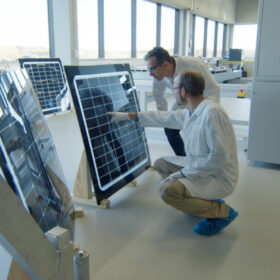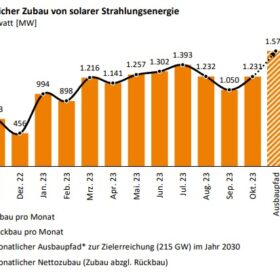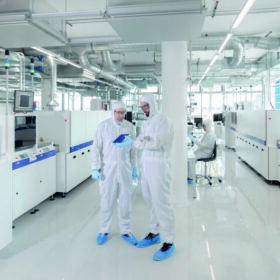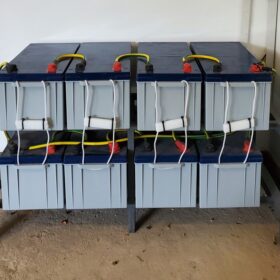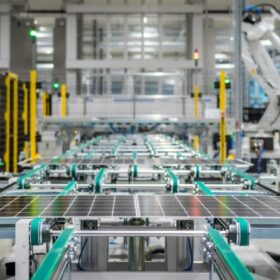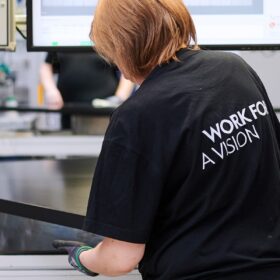Germany sets new ceiling prices for solar auctions
The German grid agency has set a ceiling price of €0.0737 ($0.081)/kWh for ground-mounted PV and €0.1050/kWh for rooftop solar installations.
SMA to build 3.5 GW inverter factory in US
SMA Solar Technology AG says it will open a new 3.5 GW inverter factory at an unspecified location in the United States in 2025. The German manufacturer is currently talking with several US states and potential partners to select the best production site.
Imec integrates silicon heterojunction solar cells into curved surfaces
Imec has successfully integrated silicon heterojunction PV cells into curved surfaces, resulting in a 6% efficiency increase compared to passivated emitter and rear contact (PERC) half cells. The cells are suitable for applications in vehicle-integrated and building-integrated PV (BIPV).
Germany’s January-October solar capacity additions hit 11.7 GW
Germany installed 11.7 GW of new solar capacity between January and October 2023, with 1.23 GW added in October alone, bringing the nation’s cumulative installed solar capacity to 79.2 GW.
Investigators still uncertain about cause of 30 kWh battery explosion in Germany
A lithium iron phosphate (LFP) battery system recently exploded in a home in central Germany, preventing police and insurance investigators from entering due to the high risk of collapse. The explosion may have been preceded by off-gassing, but it remains unclear whether an external ignition source was the cause. Some scientists say thermal runaway may have triggered the blast.
Fraunhofer ISE helping Holosolis to build Europe’s largest solar factory
Fraunhofer ISE is helping Holosolis to build Europe’s largest PV factory – a 5 GW solar plant in France – by 2025. The German research institute is providing support in technology selection and factory planning.
German consumer group debunks residential battery misconceptions
Verbraucherzentrale NRW, a German consumer protection association, has issued a warning about five misleading assumptions about PV-linked residential battery systems.
German consortium plans 5 GW vertically integrated solar module production
Heckert Solar, Wattkraft and Interfloat are planning to invest around €2 billion ($2.18 billion) in three different manufacturing facilities that will produce everything from polysilicon to solar modules.
Meyer Burger shifting focus to US market
Meyer Burger is now prioritizing the establishment of new module and cell production facilities in the United States, driven by favorable market conditions in the country.
German research institute unveils 99.74% efficient power electronics for solid-fuel heat pumps
Germany’s Fraunhofer Institute for Applied Solid State Physics (IAF) has developed an ultra-efficient circuit topology for voltage converters with an electrical efficiency of 99.74%. The tech could considerably raise the coefficient of performance for electrocaloric heat pumps and the scientists are now considering components based on semiconductor gallium nitride (GaN) for higher power density and efficiency.



